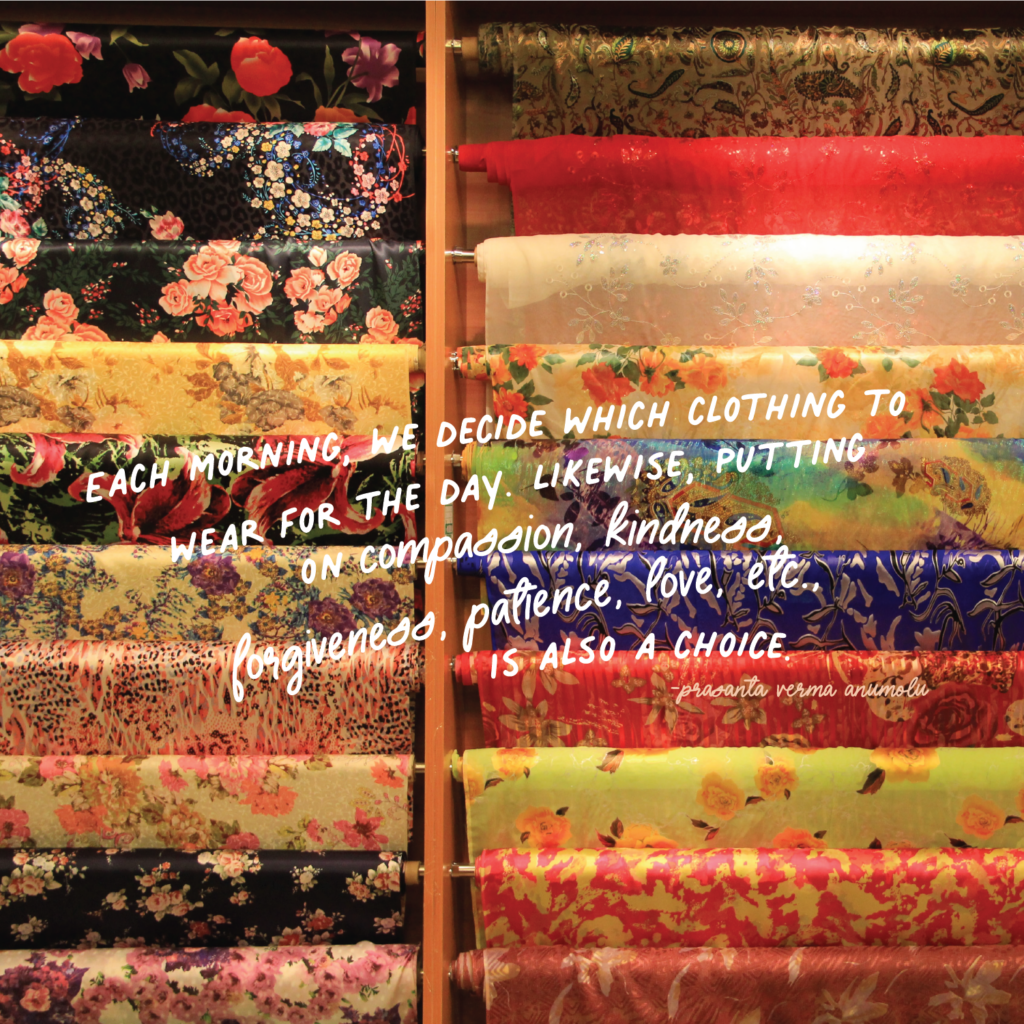Legend has it that silk was discovered by Chinese Empress Leizu, or Xi Ling-shi, wife of Emperor Huang Ti, about 3000 BC. In one story, she is sitting down with a cup of tea when a cocoon falls into her cup and begins to unravel. In another account, she was investigating the cause of some damage to mulberry bushes, and found the silkworms eating the leaves. She tried spinning the threads, invented a loom, and eventually produced the first silk garments. The Chinese kept the silk-making a secret for many years, and Ancient Romans paid a high price for it. Trading with China led to a 4,000 mile trade route called the Silk Road. Not one group made the entire journey all the way, as the goods were passed from group to group along the trade route, but that was the incredible distance people were willing to travel for this precious fabric.
Each morning, we decide which clothing to wear for the day. Likewise, putting on compassion, kindness, forgiveness, patience, love, etc., is also a choice. It is not something we are magically bestowed with upon waking up each morning, or a special gift we received at birth: we choose to be those things, or we choose not to be those things. It is a daily decision, requiring prayer, a daily emptying (confession and asking forgiveness), refueling (asking God for help), and the word dwelling in us “richly” (reading and praying His word, singing songs, sharing with one another), and being thankful.
It is interesting to note that the exhortation to let “the peace of Christ rule” in our hearts comes after we are told to put on patience, love, humility, and forgiveness. Adopting the posture of compassion, love, and gentleness is a precursor to peace.
Silk, like other fabrics on earth, will eventually fade and decompose. What is eternal is not found in our external physical looks, or what we wear, but what emanates from within. These are qualities possessing eternal value and worth—and people would be willing to travel the world over to find these qualities in their fellow human beings. We can wear a cloak of distrust, impatience, or hatred. Or we can clothe ourselves with enduring qualities that attract others to us, such as love, humility, kindness, and peace. What sort of fabric are we creating with our daily choices?
FOR REFLECTION:
- What will you do to put on love, humility, kindness, and peace today? How do you think consciously deciding to “wear” these things will change your day?
by Prasanta Verma Anumolu

Recommended Posts
Weekly Review and Application
August 7, 2021
Week 13: The Messiah’s Family · August 6
August 6, 2021
Week 13: The Messiah’s Family · August 5
August 5, 2021


